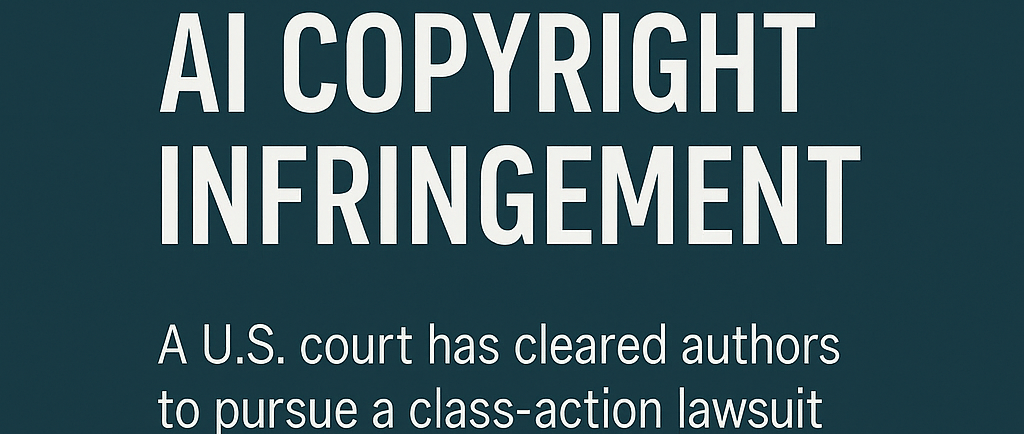Exploring AI Copyright Infringement: Balancing Innovation with Author Rights
In recent legal developments, U.S. authors have been granted permission to pursue a class-action lawsuit against Anthropic, alleging the unauthorized use of their books for training AI models. This case raises crucial questions about the intersection of technological advancement, intellectual property rights, and societal benefits.
AIAI NEWS
7/19/20252 min read


Understanding the Facts
Anthropic, a prominent player in AI research, reportedly utilized approximately 7 million books to train its AI models. The lawsuit argues that such usage constitutes copyright infringement, as the authors' original works were utilized without explicit permission or compensation.
Ethical Considerations
While the legal framework supports the authors' rights to protect their intellectual property, it's vital to examine the broader implications. AI systems, like those developed by Anthropic, enhance their capabilities through vast amounts of data, including copyrighted material. This process, akin to a digital form of "reading" and analyzing books en masse, allows for the extraction and synthesis of information at an unprecedented scale.
Benefits to Society
The crux of the ethical debate lies in weighing the benefits to society against potential damages to individual authors. AI models trained on diverse datasets, including copyrighted works, can advance fields such as natural language processing, medical diagnostics, and historical research. These advancements have the potential to democratize access to knowledge, improve healthcare outcomes, and drive scientific breakthroughs.
Analogous to Human Information Processing
Analogously, when individuals read books and synthesize information to create derivative works, they engage in a process similar to AI training. The difference lies in the scale and efficiency—AI systems process data exponentially faster than humans, accelerating the absorption and application of knowledge.
Role of Search Engines
Furthermore, search engines index vast amounts of online content, including potentially copyrighted material. While this indexing serves the public interest by facilitating access to information, it also involves the use of copyrighted works without explicit permissions from every individual author.
So What Do We Do?
In navigating the complex landscape of AI and intellectual property rights, it's crucial to strike a balance between fostering innovation and respecting creators' rights. The ongoing legal proceedings against Anthropic underscore the need for nuanced discussions on how best to regulate and ethically deploy AI technologies.
Ultimately, while protecting authors' rights is paramount, acknowledging the societal benefits derived from AI-driven advancements prompts us to consider frameworks that foster innovation while ensuring fair compensation and recognition for creators. This case serves as a pivotal moment to reevaluate our approach to AI ethics and copyright law in the digital age.
Melissa AF Harmon Creative, LLC
Simplifying systems for creative entrepreneurs and educators.
© 2025. All rights reserved.
